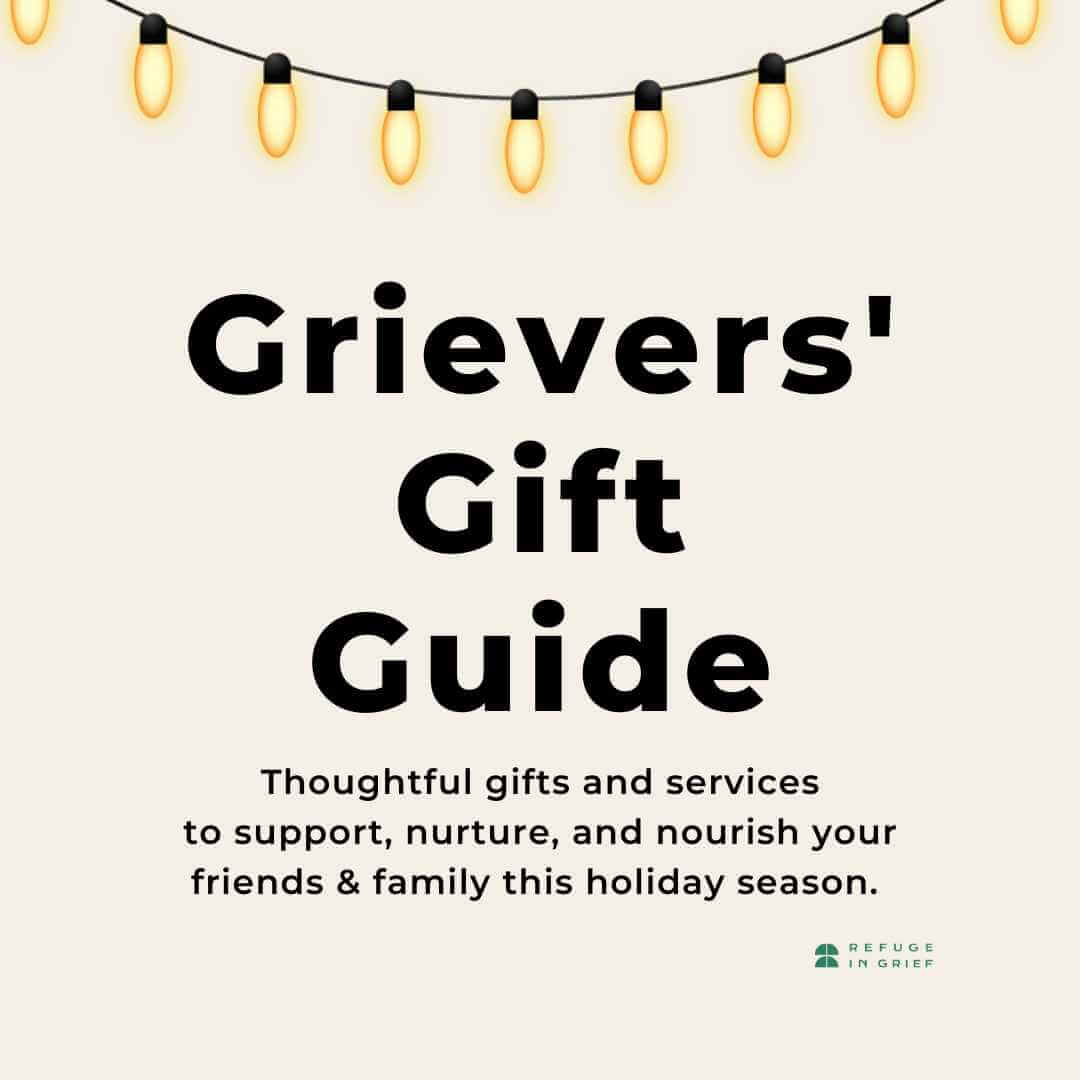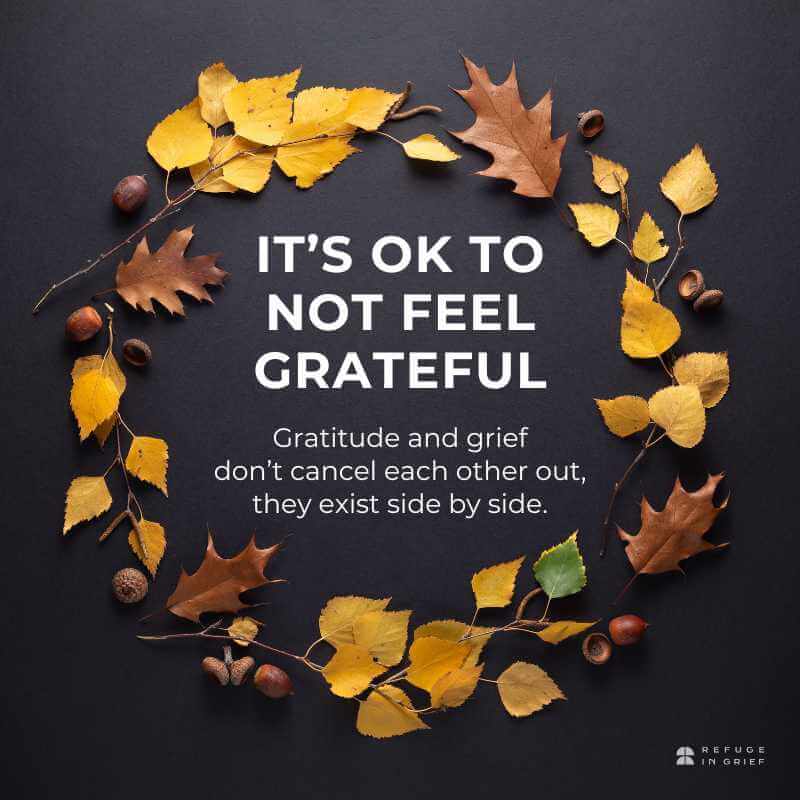Is the pandemic over? (spoiler: not even close)
Is the pandemic over? (spoiler: not even close)
In the US, the number of people who have died from COVID-19 is about to officially surpass 1 million. (when you take under-reporting into consideration, the numbers are much higher)
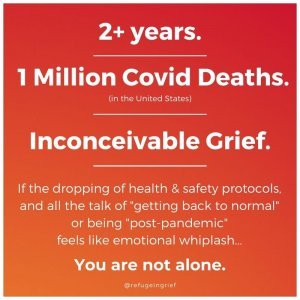
While Covid-related health & safety protocols have been dropped in most places – and there’s even talk about how we’re “post-pandemic” – we’re definitely not “post” anything.
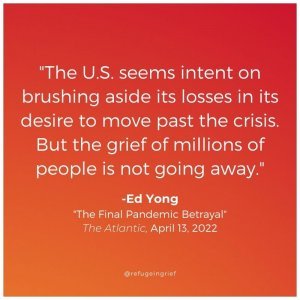
“The U.S. seems intent on brushing aside its losses in its desire to move past the crisis. But the grief of millions of people is not going away.”
–Ed Yong, “The Final Pandemic Betrayal,” The Atlantic, April 3, 2022
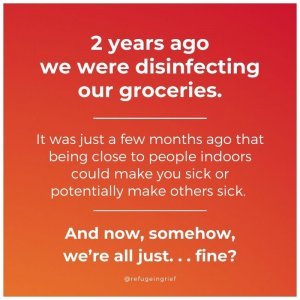
2 years ago we were disinfecting our groceries. It was just a few months ago that being close to people indoors could make you sick, or risk making others sick.
And now, somehow, we’re all just…fine? Everything’s cool now?
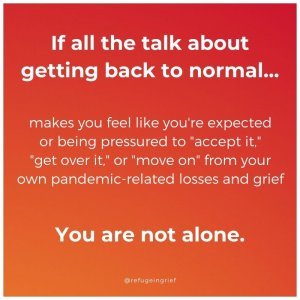
For many folks there’s an intense cognitive dissonance between their personal experience of the pandemic, and a society that’s eager to pretend the pandemic is over. It’s hard to flip the switch from “everything’s terrifying” to “everything’s fine.”
For the 10’s of millions of people affected by loss and/or long term health issues, that dissonance makes grief even harder.
There are so many ways these last 2+ years have affected us.
You’re not alone if all the talk about “getting back to normal” feels weird, if it feels like you’re expected or being pressured to “accept it,” “get over it,” or “move on” from your own pandemic-related losses and grief.
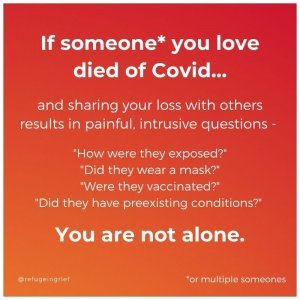
You are not alone if someone (or multiple someones) you love died of Covid, and sharing your loss with other results in painful, intrusive questions –
“How were they exposed?”
“Did they wear a mask”
“Were they vaccinated?”
“Did they have any preexisting conditions”

You are not alone if someone (or multiple someones) you love died of Covid, and people joking about the disease, or behaving like the pandemic is over, feels like you’re being gaslit by society itself.
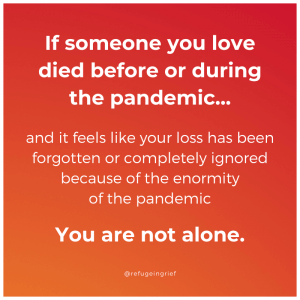
You are not alone if someone you love died before or during the pandemic and it feels like your loss has been forgotten or completely ignored because of the enormity of the pandemic.
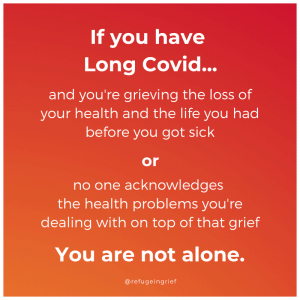
You are not alone if you have Long Covid and you’re grieving the loss of your health and the life you had before you got sick.
You are not alone if no one acknowledges the health problems you’re now dealing with on top of that grief.
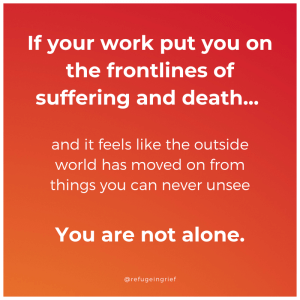
You are not alone if your work put you on the frontlines of suffering and death, and it feels like the outside world has moved on from things you can never unsee.
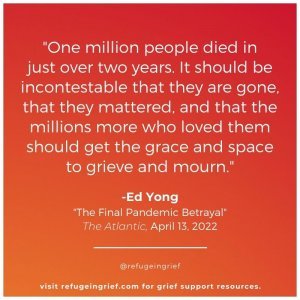
“One million people died in just over two years. It should be incontestable that they are gone, that they mattered, and that the millions more who loved them should get the grace and space to grieve and mourn.”
–Ed Yong, “The Final Pandemic Betrayal,” The Atlantic, April 3, 2022
Whether you’re grieving a loss due to death, or grieving health changes, or your work brought you into contact with way more pain and suffering that you’re used to, it’s normal to feel some emotional whiplash these days.
Even if you got through the last two years without a death or your own health issues, no one has been unaffected. Everyone is grieving something.
So many lives lost. So many lives irrevocably changed. An inconceivable amount of grief.
You’re not alone if all the talk about “getting back to normal” feels weird, if it feels like you're expected or being pressured to 'accept it,''get over it,' or 'move on' from your own pandemic-related losses and grief. Click To TweetThis isn’t over. We acknowledge how hard it is to carry pandemic-related grief in a society that’s determined to pretend the pandemic – and everything it’s brought – are all behind us now.
Telling the truth about where we’ve been and where we are won’t fix anything, but it can make you feel a little less alone in wondering WTH just happened.
For more on this topic, check out Ed Yong’s excellent piece for The Atlantic, entitled “The Final Pandemic Betrayal”

